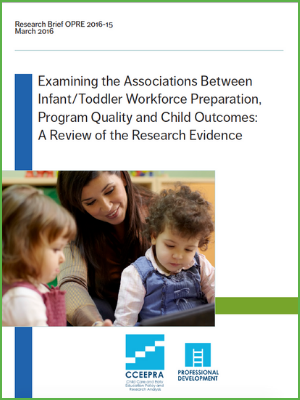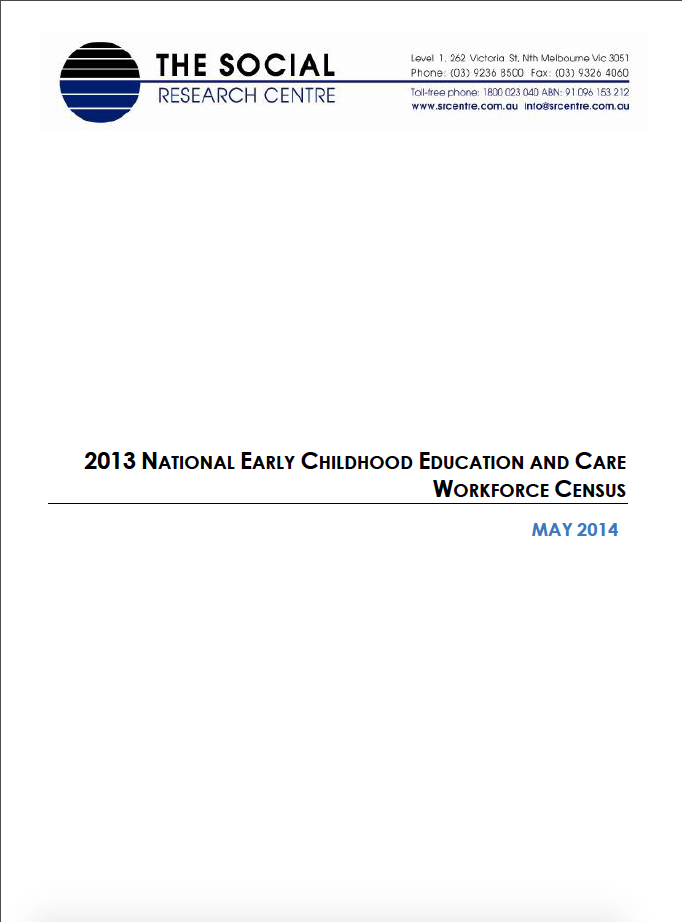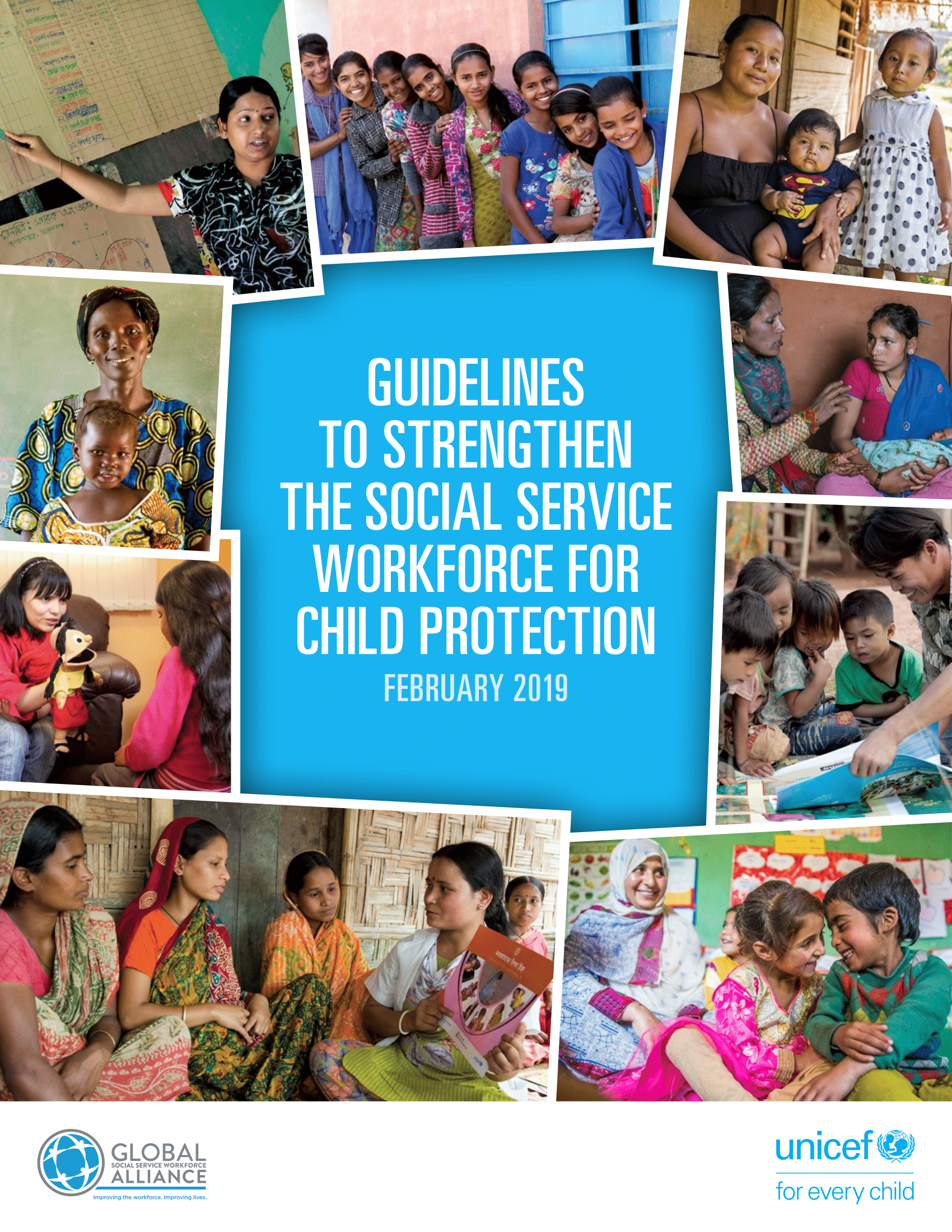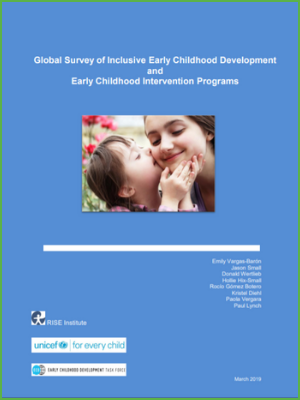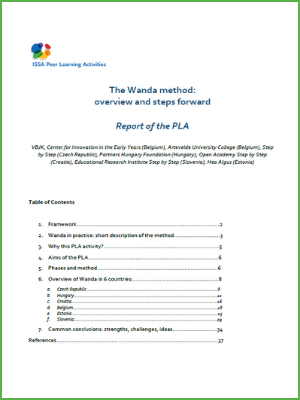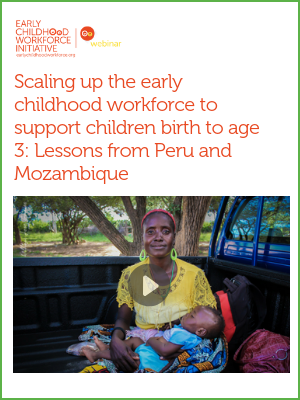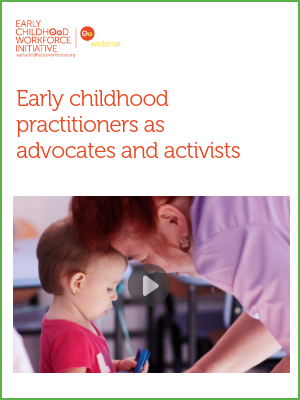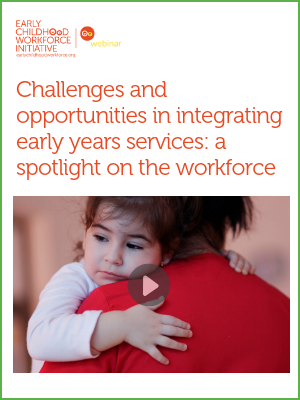Professional Development in Early Childhood Programs: Process Issues and Research Needs
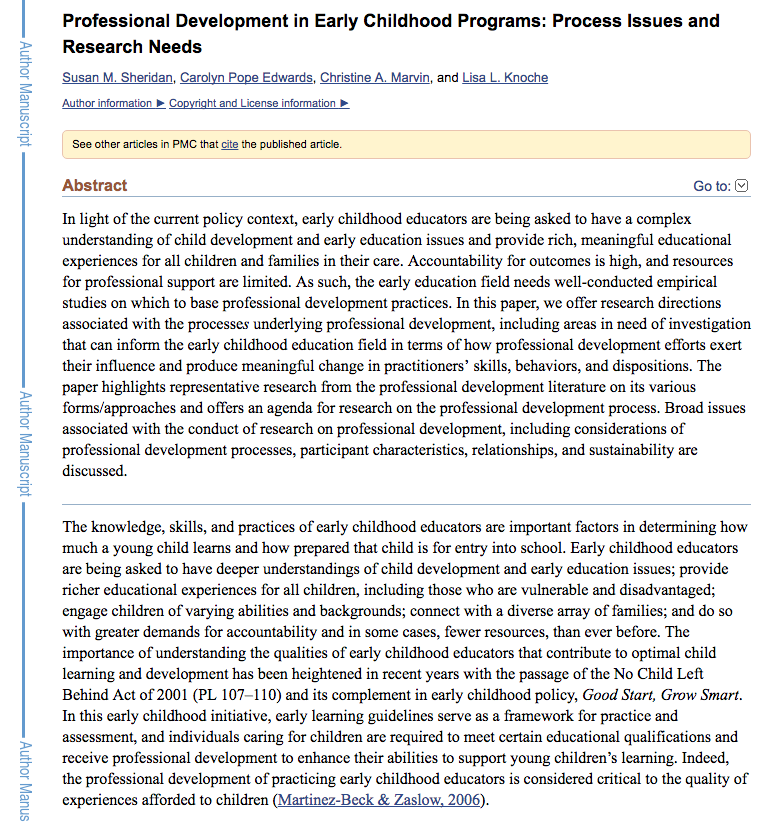
In light of the current policy context, early childhood educators are being asked to have a complex understanding of child development and early education issues and provide rich, meaningful educational experiences for all children and families in their care. Accountability for outcomes is high, and resources for professional support are limited. As such, the early education field needs well-conducted empirical studies on which to base professional development practices. In this paper,the authors offer research directions associated with the processes underlying professional development, including areas in need of investigation that can inform the early childhood education field in terms of how professional development efforts exert their influence and produce meaningful change in practitioners’ skills, behaviors, and dispositions. The paper highlights representative research from the professional development literature on its various forms/approaches and offers an agenda for research on the professional development process. Broad issues associated with the conduct of research on professional development, including considerations of professional development processes, participant characteristics, relationships, and sustainability are discussed.
www.ncbi.nlm.nih.gov


